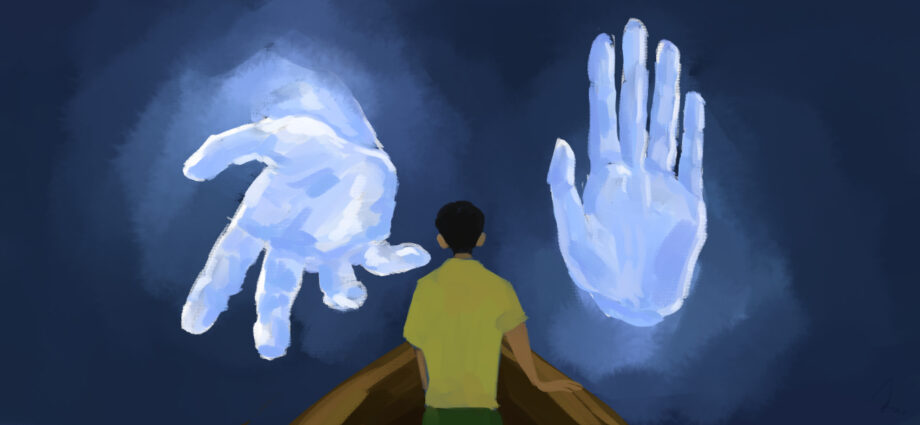By Margaux Marzuoli
In the past decade, tens of thousands of Rohingyas have been murdered by the Burmese government and religious fanatics in recurring crackdowns and a genocide in 2015. In the past decade, close to a million Rohingyas have fled their home in the Rakhine state of Myanmar, injured and traumatized.
The Right to Protect (R2P), is a political commitment that was taken by all United Nations member states to prevent genocide, war crimes, ethnic cleansing, and crimes against humanity. This article discusses how different actors in the international community have addressed the issue of the Rohingyas, considering their commitment to the R2P.
Known in Myanmar as ‘illegal Bengali migrants’ since its independence from the British Empire in 1948, the Rohingya population was never recognized in the law as one of the eight national indigenous races. This context created a strong sentiment of segregation that turned into persecution, genocide, and ultimately a refugee crisis in 2015. Today, the Rohingyas continue to suffer from direct violence as reports from the Office for the Coordination of Humanitarian Affairs (OCHA) find that summary executions, ill-treatment, and forced labor against the community are being exerted, amongst other war crimes and crimes against humanity. Government forces, alongside Buddhists, the religious majority have also been applying indirect violence through the use of discriminatory laws.
This brings us to the question of, what has the international community done in response to this?
To this day, only Bangladesh and Non-Governmental Organizations (NGOs) have provided security to the Rohingyas. Bangladesh hosts almost all the population of displaced Rohingyas in the refugee camp of Cox Bazar. Situated along the western coast of Myanmar, this has allowed the Rohingyas to get away from violence. NGOs and UN-affiliated bodies have thus been able to supply humanitarian aid to the displaced Rohingya. The OCHA, Inter-Sector Coordination Group (ISCG), and International Organization for Migration (IOM) are some of the organizations that have been working closely together to coordinate and lead humanitarian assistance in the refugee camp. The humanitarian aid from these NGOs has been essential in implementing the UN’s Joint Response Plan since 2018. This plan has been tackling the physical and psychological security of the Rohingya population as well as the local host communities in Bangladesh. Reviewed each year, the detailed plan has provided life-saving assistance to 1.3 million people.
However, the displaced Rohingyas outside Bangladesh face major security risks. Myanmar’s influence on neighboring countries and the growing anti-Islam sentiment in the region has turned most countries against the Rohingya. As such, the security of the Rohingya population is being compromised in different ways. In Thailand, Rohingyas are openly arrested, detained, and deported back to Myanmar. India hosts 40,000 Rohingyas, and although some of the population has been able to gain access to employment and education, Indian authorities have recently started deporting Rohingyas back to Myanmar. This is due to the growing influence of the Hindu-nationalist Bharatiya Janata Party (BJP) which displays Rohingyas as a threat to Indian society. In Malaysia, a majority Muslim state, the government publicly sympathizes with the Rohingyas, condemning the deaths and displacement, and even provide humanitarian aid for Rohingyas refugees abroad. However, Rohingyas living within Malaysia suffer from various forms of indirect and institutionalized violence. For instance, 40 refugees were detained after protesting in front of the Myanmar embassy in Kuala Lumpur and no Malaysian political or governmental leader condemned it.
On the global scale, the UN and the Security Council, in charge of “maintaining international peace and security” have failed to bring any form of security to the Rohingyas. Realism remains the dominant perspective in the Security Council as members continue to defend and prioritize national interests. Made up of 15 members that can make use of hard power (coercion) in the form of sanctions or the deployment of military force, the Security Council hasn’t been able to vote on a resolution to address this crisis. China strengthening its diplomatic ties with Myanmar has led to its boycott of meetings on resolutions tackling this crisis. Russia has been doing the same. Yet, where the Security Council fails, the General Assembly remains a symbol of hope. Made up of 193 states and additional non-state actors, it has passed several resolutions regarding the conflict in Myanmar. In 2015, the General Assembly passed resolutions when the genocide occurred, in 2017 after a major crackdown, and again in 2019 urging the Myanmar regime to stop the violence and assure the Rohingyas’ security. Unfortunately, its non-legally binding nature has made the resolutions relatively ineffective in protecting the tangible security of the Rohingyas.
Still, a few countries have made use of hard power by implementing sanctions on the Burmese regime. The US placed sanctions on a couple of small groups of the Burmese military. However, these sanctions have had a minor impact on Myanmar and the issue of the security of the Rohingya population remains.
So far, the international community has not guaranteed the security of the Rohingya population throughout this humanitarian crisis or implemented meaningful measures. The underwhelming actions of the international community in the fight for the Rohingyas is a classic example of Realpolitik – “politics or diplomacy based primarily on considerations, rather than explicit moral and ethical premises”. Many of the key stakeholders in this conflict are UN member-states and hence signatories to the Right to Protect. Yet, these actors continue to allow for the destruction, murder, and rape of the Rohingya people.
Edited by Macklin Miezejeski , artwork by Mira Kurtovic

